Latest world news
Netanyahu’s fait accompli to Trump

[vc_row][vc_column][vc_column_text]In a controversial move, the Israeli Knesset goes ahead with legalising 4,000 West Bank settlement homes retroactively
By Sujit Bhar
When hubris piggy-backs a high dose of self-confidence, the yield is an attitude that refuses to see reality as it is, and even refuses to address situations within social and legal parameters of the world. One can be forgiven for thinking the simile is vis-à-vis US President Donald J Trump. You are correct in your assumption, in some ways, and wrong as well.
For, this is about Israeli Prime Minister Benjamin Netanyahu.
It was just the other day that the White House rebuked Israel for its decision to build more settlements in the West Bank. Yet on February 6, Israel’s Knesset passed a law that legalised—and retroactively too—no less than 4,000 settlement homes to be built on land that is privately held by Palestinians.
Which means that Netanyahu has not only thumbed his nose at the White House, but has also agreed to take on massive international outrage and an unending series of lawsuits in his stride.
On February 2, White House spokesman Sean Spicer had said in a statement: “While we don’t believe the existence of settlements is an impediment to peace, the construction of new settlements or the expansion of existing settlements beyond the current borders may not be helpful.”
“The Trump administration has not taken an official position on settlement activity and looks forward to continuing discussions, including with Prime Minister (Benjamin) Netanyahu when he visits with President Trump later this month,” Spicer had added.
While the statement surprised many, considering Trump’s pre-election position vis-a-vis Israel, the latter had made up its mind. Reacting to Spicer, Danny Danon, Israel’s ambassador to the UN, had put out a carefully worded reply. He told Israel Radio: “It’s too early to tell… I would not categorise this as a U-turn by the US administration but the issue is clearly on their agenda… the issue will be discussed when the prime minister (Netanyahu) meets the president in Washington. We will not always agree on everything.”
Back home, Israelis, it seems, refused to wait so long. One believes Netanyahu wants to hand Trump a fait accompli when they meet. That would be difficult for Trump to disengage from, given his original stand.
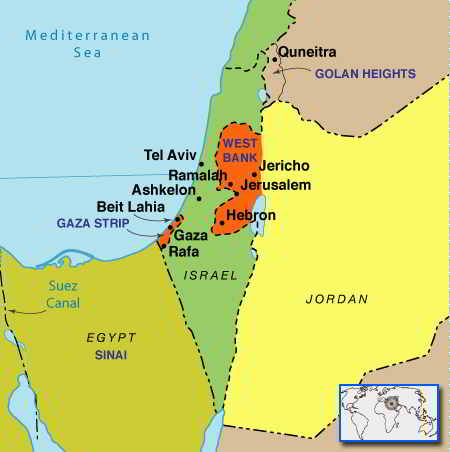 On February 6, there as a debate in the Knesset, before voting on the Bill took place. In his reply, Israeli cabinet minister Ofir Akunis reportedly said: “We are voting tonight on our right to the land. We are voting tonight on the connection between the Jewish people and its land. This whole land is ours. All of it.”
On February 6, there as a debate in the Knesset, before voting on the Bill took place. In his reply, Israeli cabinet minister Ofir Akunis reportedly said: “We are voting tonight on our right to the land. We are voting tonight on the connection between the Jewish people and its land. This whole land is ours. All of it.”
Total disregard for law
This is clear hubris, a total disregard for international law and even a disregard for the UN Security Council’s December 23 resolution that demanded the stoppage of further settlement activity on occupied Palestinian territory. It was a vote taken in US abstention, but it remains a legal document nevertheless.
This act was, obviously, not worked out through negotiations. When it becomes as law—it is expected to be challenged in the Israeli Supreme Court—it will give the administration legal teeth to confiscate land and hand out whatever compensation the administration deems fit. Such compensation can be money or alternative land, which is surely not there.
The problem in the West Bank is that it is on the border and around disputed land. International laws regarding this have little possibility of being implemented in this area.
The land agreement worked out with international arbitration after Israeli victory in the six-day war of 1967, has neither been fully accepted by Israel nor ratified by the Palestinians. Hence the entire West Bank and even the Gaza Strip remains disputed.
However, with the Palestinian Authority being recognised worldwide today, the “compensation” package is probably just a face-saver. If a Palestinian landowner refuses to part with his land, he will be forced to. That is the ground reality.
The Twist in the Tale
Here lies a twist. The way Netanyahu has been acting it seems as if he has always been against risking the wrath of the world in resuming building on the West Bank. There was, reportedly, huge argument and shouting during the voting process before it was passed 60-52 in the 120-member Knesset.
It has been reported that some spectators in visitors’ seats had shown a black cloth in protest. It is also true that Netanyahu has been concerned about possible international censure and had wanted to wait till his meeting with Trump later this month. This, however, was a ploy to try and sensitize the US regarding the issue and brandishing this support while facing the world. To him, this would have given it a legitimate tinge, however weird that may be.
His dilly-dallying with the law was clear when he had told reporters in London that he was okay with the law going through, but withdrawing into a shell thereafter, probably because of Spicer’s statement.
Also read: Common ground for Trump, Netanyahu, Modi
Hark back to the Security Council decision where ex-president Barack Obama (he was still in office at that time) pushed this resolution through the 15-member council, comprising interesting countries: New Zealand, Malaysia, Venezuela and Senegal. Even Egypt, which had initially been interested, quietly withdrew under pressure from Israel and Trump.
Before that Trump had issued an unofficial call for a veto to the bill. Israel had supported it.
It is also pertinent to recall that Netanyahu was livid, calling the vote “shameful”. He had summoned US Ambassador Daniel Shapiro for a stern talk. Back with his cabinet, he had told his colleagues in the ministry that the resolution was “reckless and destructive”.
Hence his current ingenuous attitude fails to find takers.
There is, however, some dissent which seems justified. Netanyahu’s attorney general has said that the bill was unconstitutional and that he would not defend it in the Supreme Court. He has a point. He would probably be the one defending it if the case goes to the International Criminal Court at The Hague, Netherlands. That court has already been apprised of a lot of pertinent details and is said to be examining the settlements issue.
The reactions
The Palestinian reaction was as expected. Nabil Abu Rdeneh, a spokesman for Palestinian President Mahmoud Abbas, has said: “This is an escalation that would only lead to more instability and chaos. It is unacceptable. It is denounced and the international community should act immediately.”
The US State Department too has reacted cautiously. It has reportedly said: “The Trump administration will withhold comment on the legislation until the relevant court ruling.”
The move has not received support from the global Jewish advocacy group AJC. Its CEO David Harris has been quoted as saying: “Israel’s High Court can and should reverse this misguided legislation.”
International legal position
The Fourth Geneva Convention of 1949 prohibits countries from moving population into territories occupied in a war. That, incidentally, was also the year that the state of Israel came into existence.
The trouble has been with Israeli stubbornness and, of course, with massive US support. Israel says this decision of 1949 does not apply to territory occupied during the Six-Day War of 1967. Proving this argument to be specious, the UN Security Council, its General Assembly, the International Committee of the Red Cross, the International Court of Justice and the High Contracting Parties to the Convention have all said that the Fourth Geneva Convention does apply.
Technically that left Israel with the fig leaf of the US support.
Many UN resolutions have clearly said that these settlements, East Jerusalem and the Golan Heights occupations are illegal. The last UN Security Council decision wasn’t the first. Similar rulings had been passed in 1979 and 1980, too.
Israel has deliberately kept its position vis-a-vis the law somewhat vague and has failed to justify its stand about pushing its population into territory that the international community believes is Palestinian.
There has also been talk to equate this issue with the China-Tibet issue, but that has not gained as much traction as this. This is probably because of India’s somewhat weak position vis-a-vis the matter. It is the strength of conviction that keeps the Palestine issue hot around the world. The legal battles, that should ensue and then get lost in the mist, would still be pertinent in the social contexts of these nations.[/vc_column_text][/vc_column][/vc_row]
India News
Sri Lankan Minister Douglas Devananda says statements on reclaiming Katchatheevu island from Sri Lanka have no ground
Devananda told the media on Thursday that it is not unusual to hear such claims and counterclaims about Katchatheevu as elections are taking place in India.
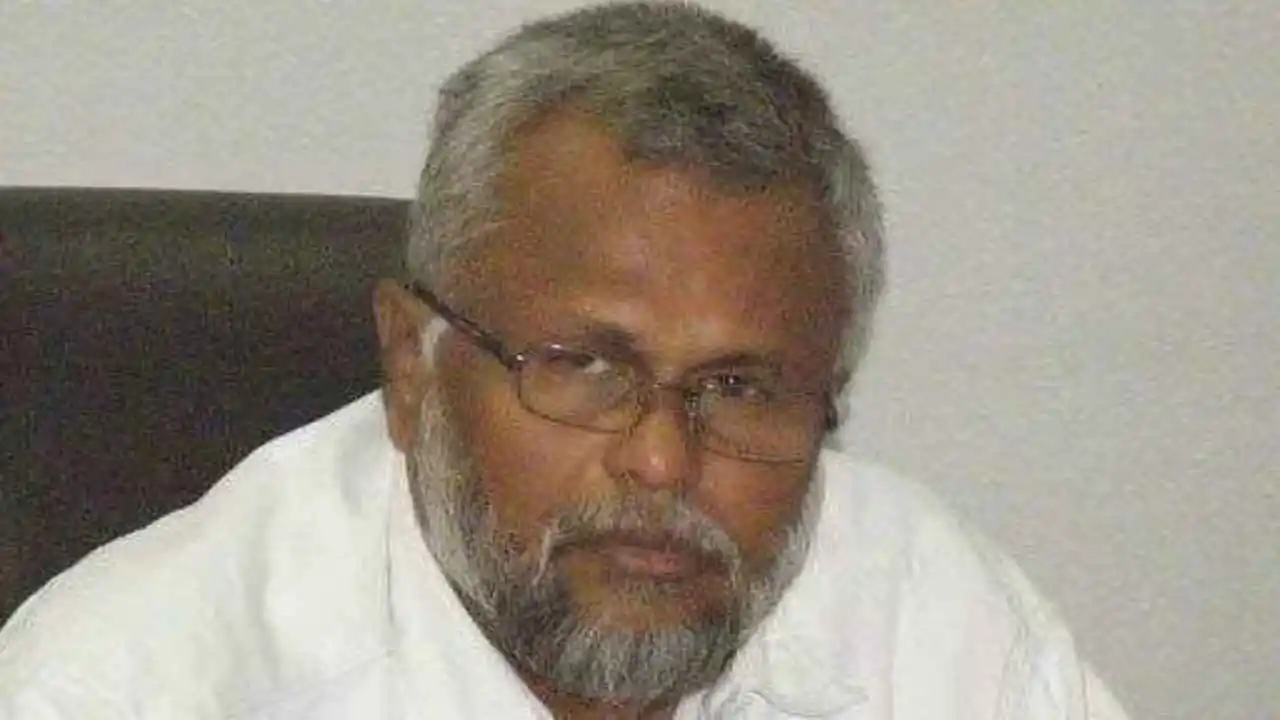
Sri Lankan Minister Douglas Devananda has said the statements from some political leaders in India on reclaiming Katchatheevu from the island nation have no ground. He told the media on Thursday that it is not unusual to hear such claims and counterclaims about the strategic island as elections are taking place in India.
The Sri Lankan Minister said he thought India is acting on its interests to secure this place to ensure Sri Lankan fishermen would not have any access to that area and that Sri Lanka should not claim any rights in that resourceful area. According to the 1974 agreement, Devananda said Indian and Sri Lankan fishermen can go fishing in the territorial waters of both countries until the pact was reviewed and amended in 1976.
The amended agreement resulted in fishermen from both countries being barred from fishing in neighboring waters. India’s ministry of External Affairs (MEA) on Thursday steered clear of the row surrounding Katchatheevu island. To a volley of questions on the Katchatheevu issue, MEA spokesperson Randhir Jaiswal reffered to External affairs Minister S Jaishankar’s recent comments on the matter.
He said he would like to talk about the issue that has been raised. He added the External Affairs minister has spoken to the press here in Delhi and also in Gujarat and has clarified all the issues. He said everyone should look into the press engagements and they would find the answers to their questions there.
The remarks from Devananda, a Sri Lankan Tamil, came days after the Narendra Modi government accused the Congress and its ally DMK in Tamil Nadu of overlooking national interests by handing over Katchatheevu island to Sri Lanka in 1974. The BJP has also been slamming the 2 parties for not ensuring the rights of the fishermen wanting to fish in waters around the island.
India News
US reiterates its call for fair, transparent, legal process for Delhi CM Arvind Kejriwal, speaks on Congress frozen accounts
The US spokesperson said that they are also aware of the Congress party’s allegations that tax authorities have frozen some of their bank accounts in a manner that will make it challenging to effectively campaign in the upcoming elections.
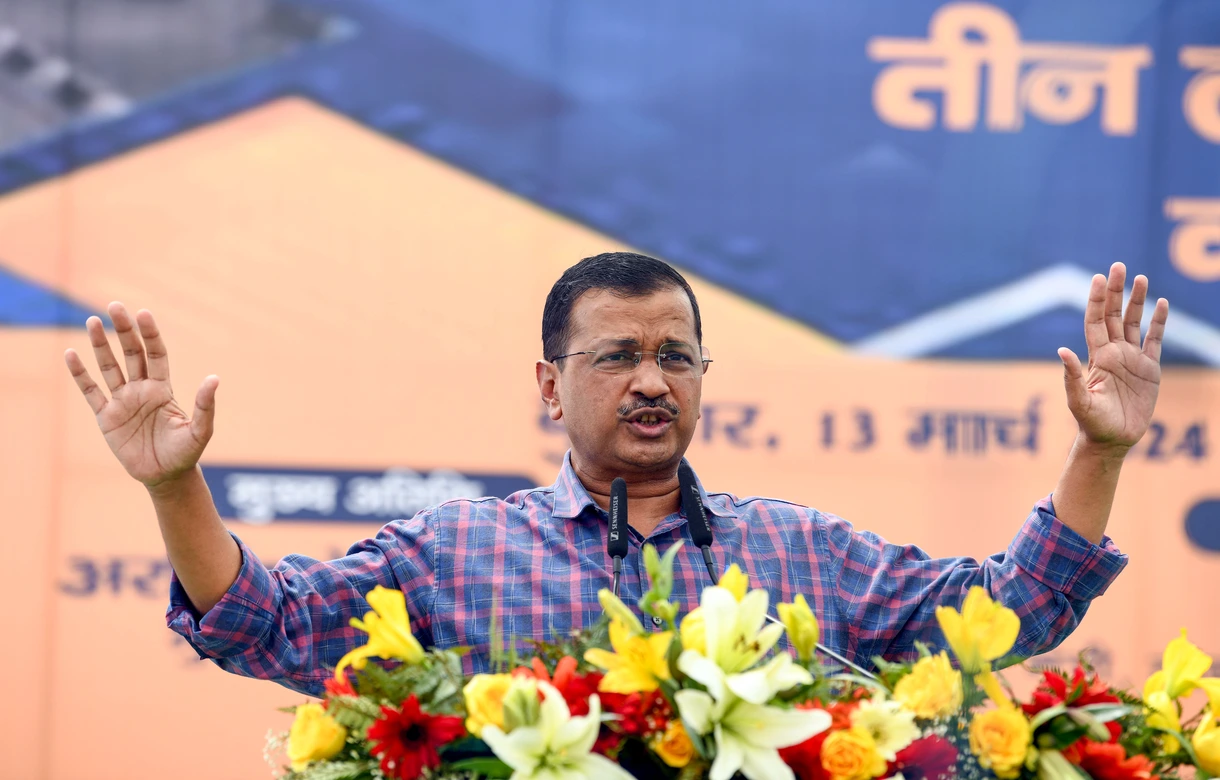
A day after India summoned an US diplomat over their remarks on the arrest of Delhi Chief Minister Arvind Kejriwal in the liquor policy case, the US reiterated its call for fair, transparent, timely legal processes on Wednesday.
Responding to questions on India summoning Gloria Berbena, the US Acting Deputy Chief of Mission in New Delhi, US State Department spokesperson Matthew Miller said that they will continue to follow these actions closely, including the arrest of Delhi Chief Minister Arvind Kejriwal. Notably, the meeting at the foreign ministry’s South Block office lasted nearly 40 minutes yesterday with India objecting strongly to the US remarks on the arrest of Arvind Kejriwal.
Matthew Miller also responded to a question on the Congress party’s frozen bank accounts. The US spokesperson said that they are also aware of the Congress party’s allegations that tax authorities have frozen some of their bank accounts in a manner that will make it challenging to effectively campaign in the upcoming elections. He added that the US encourages fair, transparent and timely legal processes for each of the issues.
Arvind Kejriwal was arrested last week by the Enforcement Directorate (ED) in connection to the Delhi liquor policy scam. Earlier, AAP leaders Manish Sisodia, Satyendar Jain and Sanjay Singh were arrested in the same case.
The External Affairs Ministry had earlier stated that states are expected to be respectful of the sovereignty and internal affairs of others, and this responsibility is even more so in case of fellow democracies, adding that it could otherwise end up setting unhealthy precedents.
The Ministry further emphasized that India’s legal processes are based on an independent judiciary which is committed to objective and timely outcomes. It mentioned that casting aspersions on India’s legal procedure is unwarranted.
The United State’s remarks followed days after Germany’s Foreign Office stressed that Delhi CM Arvind Kejriwal is entitled to a fair and impartial trial. The Indian government labelled their remark as blatant interference in internal matters.
Latest world news
5 Chinese nationals killed in suicide bomb attack in Pakistan
This is the third major attack on Chinese interests in Pakistan within a week.
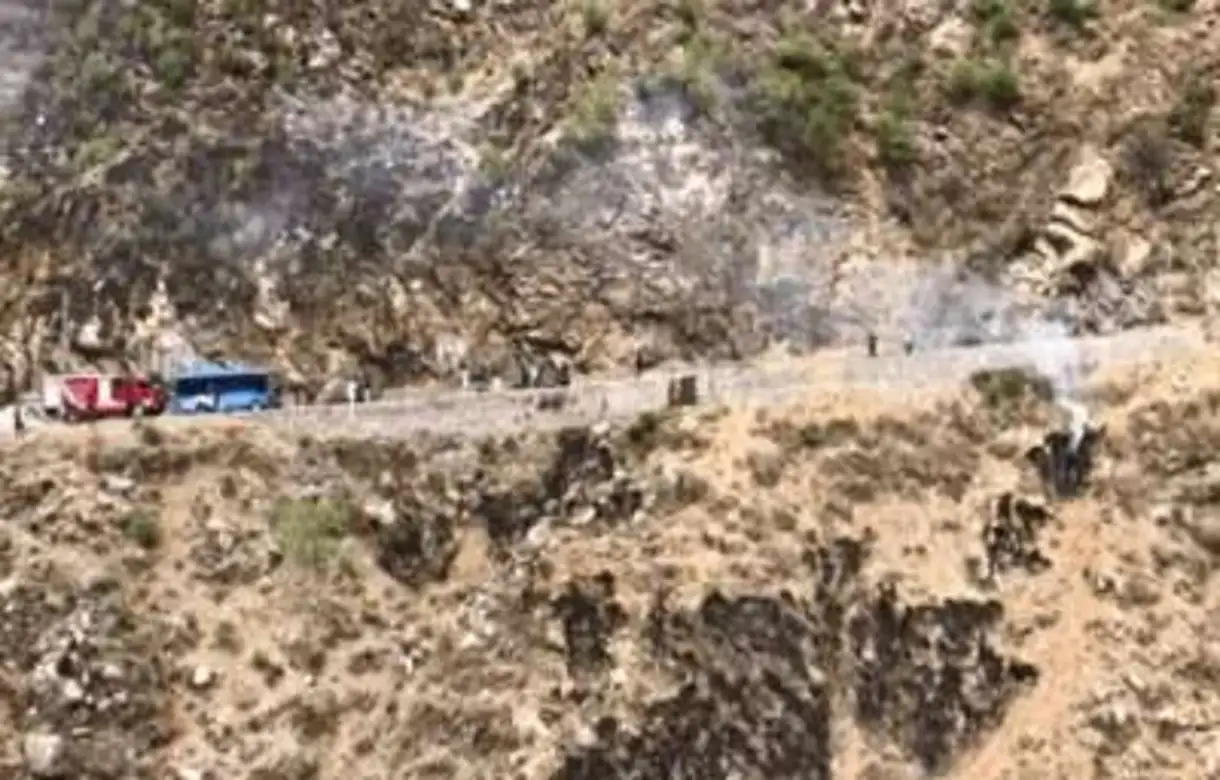
Nearly five Chinese nationals were killed in an explosion during an attack on their convoy by a suicide bomber in northwest Pakistan on Tuesday. Reportedly, the suicide bomber rammed an explosives-laden vehicle into a convoy of Chinese engineers travelling from Islamabad to their camp in Dasu, situated in the Khyber Pakhtunkhwa province.
Regional police chief Mohammad Ali Gandapur said that five Chinese nationals and their Pakistani driver were killed in the attack. As yet, none has claimed responsibility for the attack. Bisham Station House Officer (SHO) Bakht Zahir asserted that the incident was a suicide blast and the authorities concerned were collecting the evidence.
The Station House Officer further added that security arrangements were tightened at the spot and the bodies were being shifted to a hospital. He added that they will investigate from where and how the vehicle of a suicide bomber came and how it happened. Notably, this is the third major attack on Chinese interests in Pakistan within a week.
Previously, two attacks hit an airbase and a strategic port in the southwest province of Balochistan where China is investing billions in infrastructure projects. Several Chinese engineers and Pakistani construction workers have for multiple years been working on hydroelectric projects as part of Beijing’s Belt and Road Initiative in the western province of Khyber-Paktunkhwa.
Notably, Dasu is home to a significant dam project, has been a target of previous attacks. Earlier in 2021, the attack in Dasu resulted in the deaths of nine Chinese nationals, along with two Pakistani children. The incident occured when a bus carrying Chinese engineers and workers to the Dasu Hydropower Project site was targeted.
There was confusion surrounding the nature of the attack initially, with some reports suggesting it was a bus accident. Nonetheless, subsequent investigations revealed that it was indeed a terrorist attack. The bus was hit by a blast, leading it to plunge into a ravine.
-
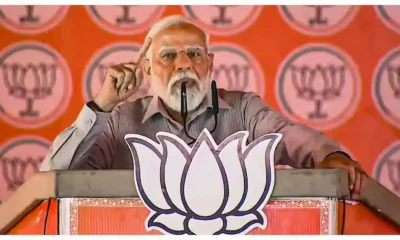
 2024 Lok Sabha Elections10 hours ago
2024 Lok Sabha Elections10 hours agoPrime Minister Narendra Modi says RJD is responsible for destroying Bihar, slams Lalu’s party over various corruption cases
-

 Cricket news12 hours ago
Cricket news12 hours agoIPL 2024: Travis Head smashes brilliant century, Pat Cummins takes 3 wickets as Sunrisers Hyderabad defeat Royal Challengers Bengaluru by 25 runs
-

 India News12 hours ago
India News12 hours ago2 shooters arrested from Gujarat for firing outside Salman Khan’s house
-
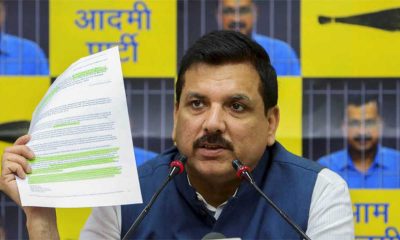
 India News10 hours ago
India News10 hours agoMy name is Arvind Kejriwal and I am not terrorist: Sanjay Singh reads Delhi CM’s message from Tihar Jail
-

 2024 Lok Sabha Elections10 hours ago
2024 Lok Sabha Elections10 hours agoLok Sabha elections 2024: BJP releases 12th list of candidates, Udayanraje Bhonsle to contest from Satara
-

 Food7 hours ago
Food7 hours agoBengaluru outlet selling gold and silver panipuri goes viral
-

 Entertainment9 hours ago
Entertainment9 hours agoAmul pays tribute to Diljit Dosanjh, Parineeti Chopra starrer Amar Singh Chamkila
-

 India News9 hours ago
India News9 hours agoGujarat Jain couple donate Rs 200 crore wealth, renounce world















